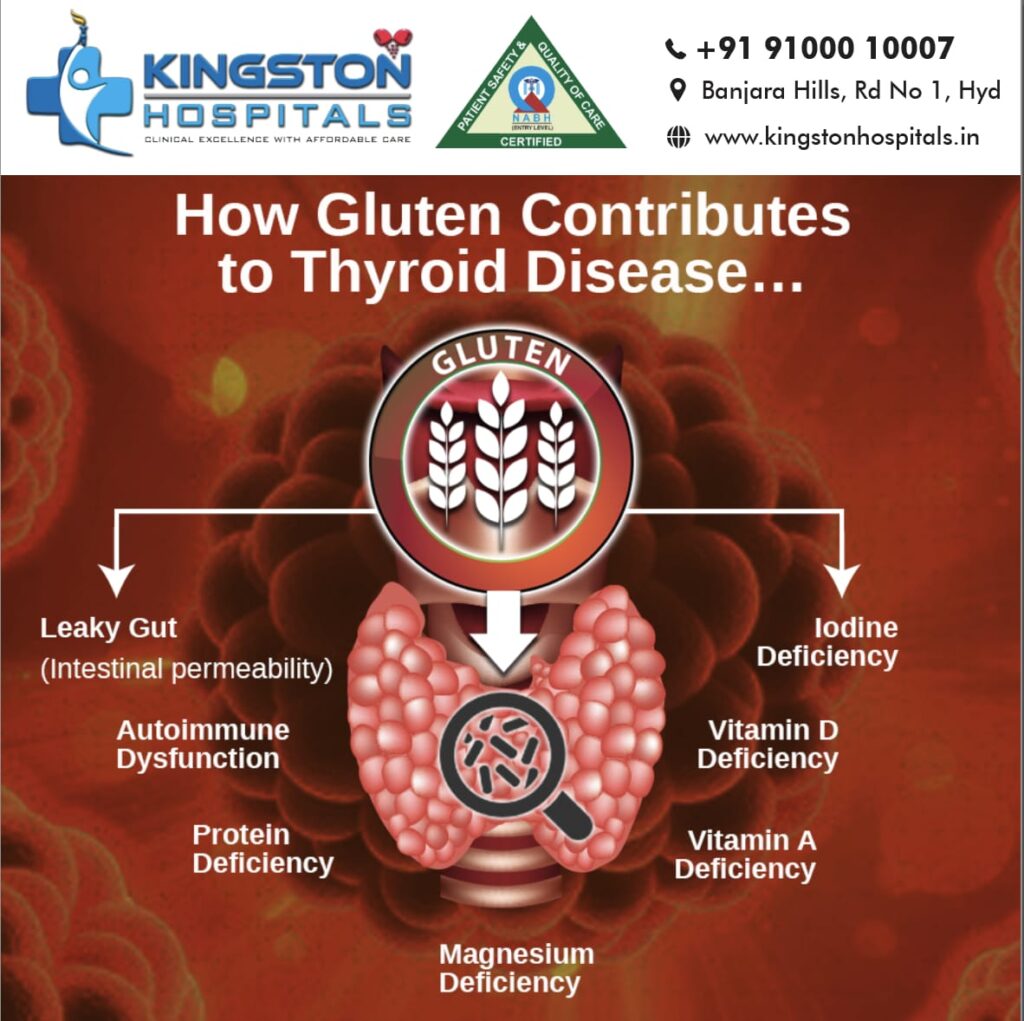Introduction
In recent years, the relationship between diet and thyroid health has garnered significant attention. One particular area of interest is the impact of gluten on thyroid function. Gluten, a protein found in wheat, barley, and rye, has been linked to various autoimmune conditions, including thyroid disease.

What is Gluten?
Gluten is a complex protein that gives dough its elastic texture. It is found in grains such as wheat, barley, and rye. While gluten is safe for most people, it can cause adverse reactions in individuals with gluten sensitivity or celiac disease.
Understanding Thyroid Disease
Thyroid disease refers to a group of conditions that affect the thyroid gland, a small, butterfly-shaped gland located in the front of the neck. The thyroid gland plays a crucial role in regulating metabolism and energy levels. Common thyroid disorders include hypothyroidism, hyperthyroidism, and autoimmune thyroid diseases such as Hashimoto’s thyroiditis and Graves’ disease.
The Connection Between Gluten and Thyroid Disease
Research suggests that there is a link between gluten consumption and autoimmune thyroid diseases, particularly Hashimoto’s thyroiditis. Autoimmune thyroid diseases occur when the immune system mistakenly attacks the thyroid gland, leading to inflammation and dysfunction.
How Gluten Triggers Autoimmune Responses
Gluten contains proteins called gliadin and glutenin, which can trigger immune responses in susceptible individuals. In people with a genetic predisposition to autoimmune diseases, such as those with specific HLA-DQ gene variants, gluten consumption can lead to the production of antibodies that attack the thyroid gland.
Impact of Gluten on Thyroid Health
For individuals with autoimmune thyroid diseases, consuming gluten can exacerbate inflammation in the thyroid gland, leading to worsening symptoms and disease progression. Some studies suggest that following a gluten-free diet may help reduce thyroid antibody levels and improve thyroid function in these individuals.
Gluten-Free Diet and Its Role in Managing Thyroid Disease
A gluten-free diet involves avoiding foods that contain gluten, such as wheat, barley, and rye. For individuals with autoimmune thyroid diseases, adopting a gluten-free diet may help reduce inflammation, improve thyroid function, and alleviate symptoms. However, it is essential to consult with a healthcare professional before making any dietary changes.
Research Studies and Findings
Several studies have investigated the relationship between gluten and thyroid disease. A study published in the Journal of Clinical Endocrinology and Metabolism found that following a gluten-free diet reduced thyroid antibody levels in patients with autoimmune thyroid diseases. Another study published in the European Journal of Endocrinology reported improvements in thyroid function in patients with Hashimoto’s thyroiditis after adopting a gluten-free diet.
Symptoms of Gluten Sensitivity
Gluten sensitivity is a condition in which individuals experience adverse reactions to gluten consumption without having celiac disease. Symptoms of gluten sensitivity can vary widely and may include digestive issues, fatigue, joint pain, and skin problems.
Diagnosis and Testing
Diagnosing gluten sensitivity can be challenging, as there is no specific test for the condition. However, healthcare providers may use a combination of blood tests, genetic testing, and an elimination diet to determine if gluten is causing symptoms.
Treatment and Management Strategies
The primary treatment for gluten sensitivity and celiac disease is following a strict gluten-free diet. This involves avoiding all sources of gluten, including wheat, barley, and rye. Additionally, individuals may benefit from working with a dietitian to ensure they are meeting their nutritional needs.
Benefits of a Gluten-Free Diet
In addition to managing thyroid disease, a gluten-free diet may offer other health benefits, such as improved digestive health, increased energy levels, and better nutrient absorption. Some people also report improvements in skin conditions and mood after going gluten-free.
Challenges of Maintaining a Gluten-Free Lifestyle
While a gluten-free diet can be beneficial, it can also be challenging to maintain, as gluten is present in many foods and food products. Individuals following a gluten-free diet must carefully read food labels and be aware of hidden sources of gluten.
Tips for Going Gluten-Free
For individuals considering a gluten-free diet, it is essential to educate oneself about gluten-containing foods and alternatives. Some tips for going gluten-free include cooking meals at home using whole, unprocessed foods, and seeking out gluten-free products at grocery stores.
Conclusion
In conclusion, gluten may contribute to thyroid disease, particularly autoimmune thyroid diseases such as Hashimoto’s thyroiditis. For individuals with these conditions, following a gluten-free diet may help reduce inflammation, improve thyroid function, and alleviate symptoms. However, it is crucial to consult with a healthcare professional before making any dietary changes.
FAQs
- Is a gluten-free diet necessary for everyone with thyroid disease?
- A gluten-free diet is not necessary for everyone with thyroid disease. However, it may be beneficial for individuals with autoimmune thyroid diseases.
- Can gluten sensitivity cause thyroid disease?
- While gluten sensitivity is not a direct cause of thyroid disease, it may contribute to the development or exacerbation of autoimmune thyroid diseases in susceptible individuals.
- Are there any risks associated with a gluten-free diet?
- A gluten-free diet can be nutritious if well-planned. However, it may be low in certain nutrients such as fiber, iron, and B vitamins if not balanced properly.
- Are there gluten-free alternatives for common gluten-containing foods?
- Yes, there are many gluten-free alternatives available, including gluten-free bread, pasta, and flour made from rice, corn, or almond flour.
- How can I determine if I have gluten sensitivity?
- If you suspect you have gluten sensitivity, it is best to consult with a healthcare provider who can recommend appropriate testing and dietary changes.


